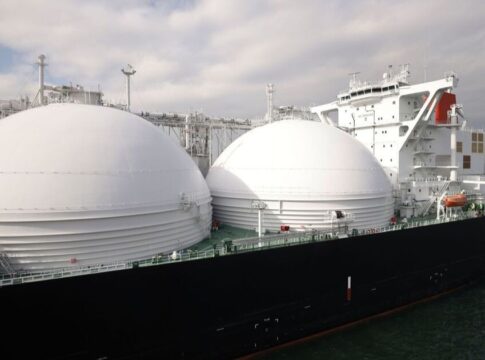In a strategic pivot to bolster its energy resilience ahead of peak summer demand, Egypt has entered advanced discussions with Qatar to secure long-term natural gas supply agreements, according to a statement released by the Ministry of Petroleum and Mineral Resources.
A high-level delegation led by newly appointed Minister Karim Badawi visited Doha this week, signaling a significant recalibration of Egypt’s energy diplomacy towards Gulf gas powerhouses. Badawi was joined by Yassin Mohamed, head of the Egyptian Natural Gas Holding Company (EGAS), and Moataz Atef, technical undersecretary and ministry spokesperson.
“This isn’t just about avoiding blackouts this summer — it’s a signal that Egypt is repositioning itself in the regional LNG ecosystem,” a senior official in the ministry told Middle East Observer, requesting anonymity due to the sensitivity of the talks.
The move comes on the heels of a turbulent energy season in 2024, when widespread power outages left Egyptian cities in darkness during a record heatwave. At the time, natural gas shortages — worsened by regional instability and falling domestic output — strained the country’s electricity grid.
In March this year, Electricity Minister Mahmoud Esmat pledged that such disruptions would not be repeated. The government plans to introduce 2 gigawatts of additional capacity before summer 2025, with natural gas playing a central role in powering thermal plants.
“Our strategy is centered on efficient resource use and operational continuity,” Esmat told parliament, hinting at a broader realignment of Egypt’s power and fuel priorities.
Qatar, the world’s second-largest LNG exporter, has long held strategic gas assets in Egypt. The talks between Cairo and Doha aren’t limited to imports. Sources close to the matter say the two nations are exploring integrated infrastructure plans, including liquefaction, regasification, and even joint exports — a first for the bilateral energy relationship.
Furthermore, QatarEnergy, the Gulf nation’s state energy firm, is actively expanding its upstream footprint in Egypt. Key Mediterranean wells — including Nefertari, Cairo, Masry, and North Marakia — are being explored in partnership with ExxonMobil, under Egypt’s EUG exploration and production gateway.
“These wells are part of a quiet but aggressive drilling campaign that could redefine Egypt’s offshore reserves,” said Dr. Hani El-Sayed, an energy economist at the American University in Cairo. “Qatar’s technical and financial clout is now deeply embedded in Egypt’s future gas map.”
Adding another layer to Egypt’s energy pivot, the Cairo government earlier this year signed a historic pipeline agreement with Cyprus, allowing gas from the Cronos and Aphrodite fields to be piped directly to Egypt’s liquefaction hubs in Idku and Damietta.
This move positions Egypt not only as a regional energy consumer, but also as a gas liquefaction and re-export hub—especially to energy-hungry European markets seeking alternatives to Russian supplies.
“By 2027, Egypt could reemerge as a net gas exporter — a dramatic reversal from where it stood just two years ago,” said Nadine Wahba, MEO’s senior energy analyst. “Qatar, Cyprus, and regional geopolitics are now shaping that transformation.”
While public details remain scarce, MEO has learned from two industry insiders that discussions in Doha also touched on: Floating LNG terminal solutions to quickly absorb emergency summer supplies, Joint Egyptian-Qatari bidding for East Med exploration blocks in upcoming 2026 rounds and a potential memorandum of understanding (MoU) on shared R&D in LNG technologies.
The Cairo-Doha rapprochement on energy comes amid a broader thaw in Egyptian-Qatari relations, which have steadily improved since the 2021 Al-Ula Declaration. Economic cooperation has been rising, with Qatari investment in Egyptian infrastructure, finance, and real estate surging. If realized, the natural gas deal would serve as both an economic stabilizer and diplomatic milestone, reaffirming Egypt’s role as a critical player in Middle Eastern energy corridors.


